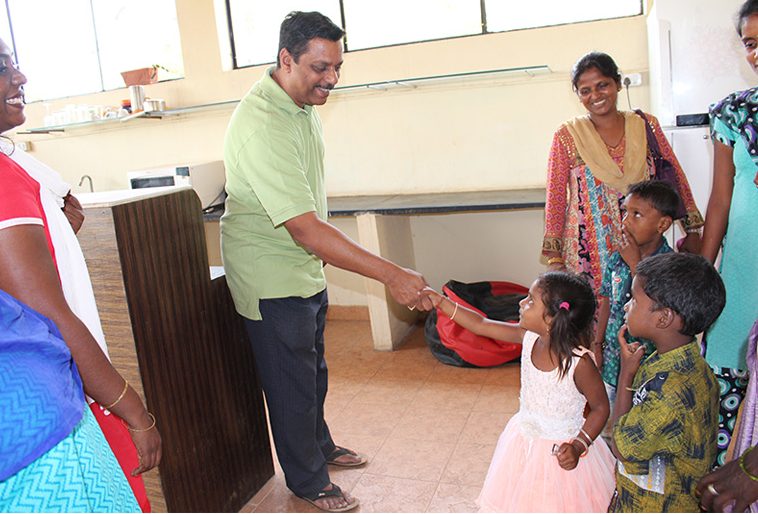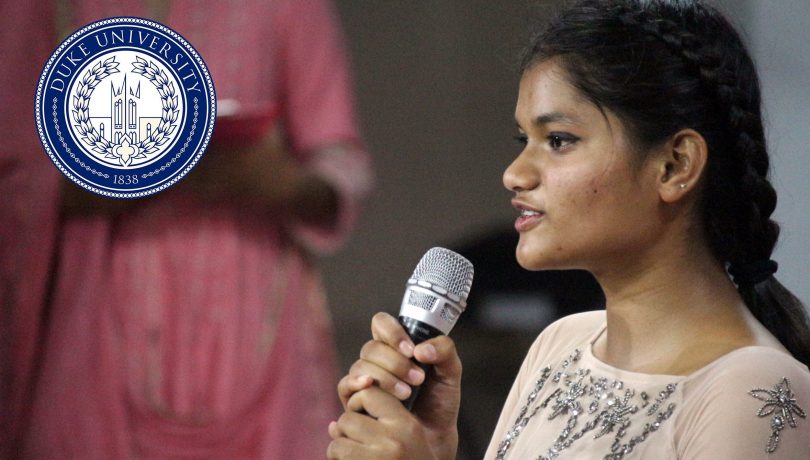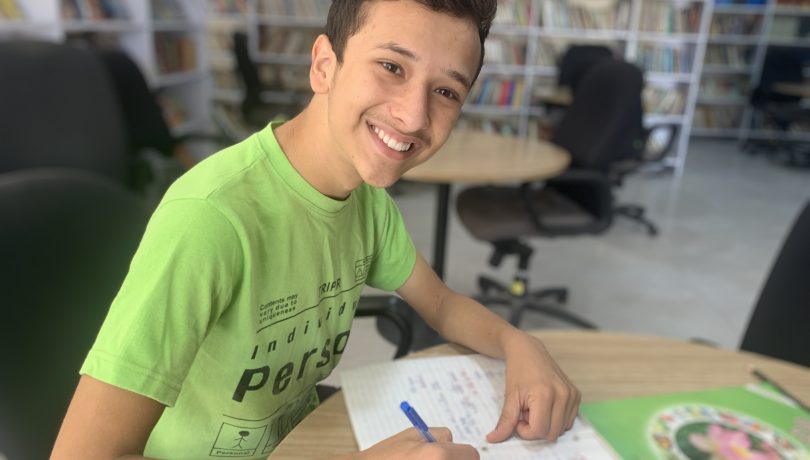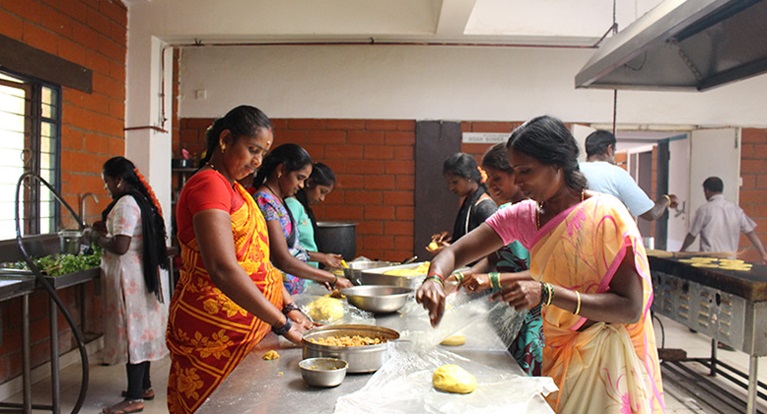
by Ayesha Ferdouse
I had the privilege of serving as an Administrative Manager at Shanti Bhavan for the academic year of 2017-18. While on campus, I embraced every opportunity to acquaint myself with the staff, especially the non-teaching staff I had little professional contact with.
Shanti Bhavan is home to more than 300 students, from preschool to the 12th grade. Since its inception in 1997, Shanti Bhavan’s commitment to these children has gone far beyond academics. It sustains a safe, clean, and loving environment where kids can develop their sense of self, have a healthy childhood, and receive the emotional support needed to blossom into caring individuals. To do that, Shanti Bhavan employs a range of staff, all of whom are directly or indirectly involved in the upbringing of the children. Aside from the academic faculty, the staff includes dorm caretakers or aunties, medical personnel, kitchen crew, a custodial and maintenance team, and security guards.
Many of the staff share backgrounds similar to those of our students. Some are from nearby villages, while others come from cities and states requiring more than 10 hours of travel. All staff members are provided with on-campus housing, meals, healthcare, and retirement benefits—their essential needs are addressed so everyone can focus on creating an ideal student environment. Shanti Bhavan offers refuge and peace to the staff, who are often all too familiar with discrimination and prejudice. Here, they find a sense of belonging rather than ostracization.
I could tell you many stories but here is one that encapsulates much of the spirit of Shanti Bhavan:
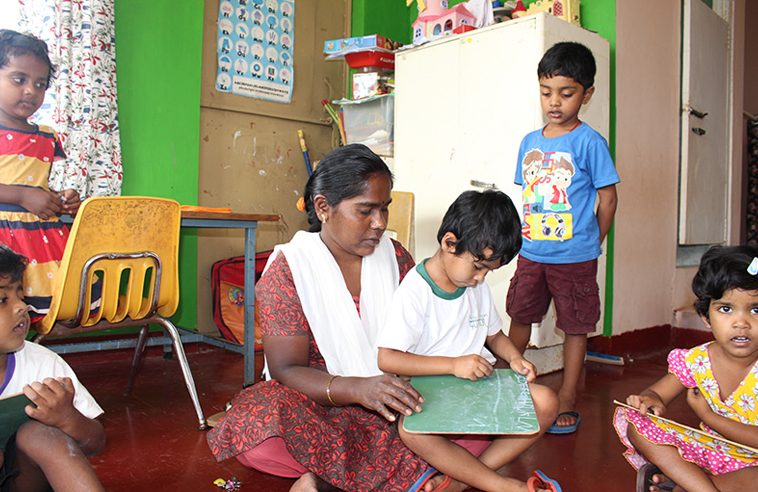
Aunty Vasanthama has been a dorm caretaker at Shanti Bhavan for 10 years. She grew up in an impoverished family in Bangalore and was married at an early age. She never imagined that she would be an independent woman financially supporting her family. At Shanti Bhavan, she is in charge of the dorm for middle and high school girls, commonly known as “big dorm,” and supervises several other aunties. You can often see her joking around with the kids as she serves them food but also scolding them for not cleaning their shoes properly. She offers to help volunteers put on saris, shares pickles her mother packed from home, and looks after the older girls as if they are her own. It’s hard to imagine the struggle she went through to be the woman she is today. But the past is the past and for Aunty Vasanthama, she uses the lessons she learned to guide the children under her care.
Shanti Bhavan strongly believes that to maintain an environment conducive to personal growth for the students, the team must exemplify the values they aim to inculcate. For many, especially staff who are single mothers, Shanti Bhavan is a new beginning where they have the opportunity to be empowered by their colleagues through a trifecta of equal treatment, dignity, and accountability. All of this motivates the staff to transfer their learnings to the children they protect.
The best way to facilitate the transference of humanistic values is through relationship building. Relationships are fostered in multiple ways, from spending quality time with one another to involving the students in daily tasks. For example, when the kitchen crew is tasked with making naan or chapati (types of bread) for the whole school, they are supported by the high school students, who help knead and roll the dough and fry them in time for dinner. Or when all the aunties congregate for a staff meeting, the older students disperse into the dorms of the younger kids to look after them.
I returned to campus for a short visit two years after my contract ended. Everyone was ready to celebrate a harvest festival. I saw aunties adorned in colorful saris with jasmine flowers in their hair, reminding kids to be quiet. In the dining hall, the kitchen staff was in full swing preparing to serve 26 dishes, a defining characteristic of the festival. After lunch, the 11th graders prompted the whole school to applaud the kitchen staff for the many hours spent preparing and cooking for everyone. I had been away for two years, but the dedication, commitment, and the love I had observed had remained unchanged.
